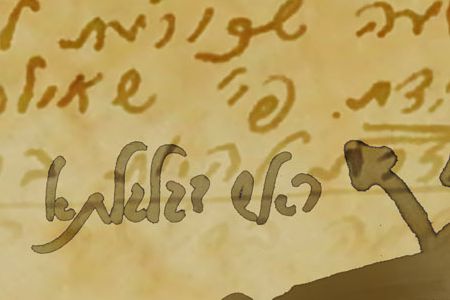Exodus, 18:1-20:22
This Week’s Torah Portion | Jan 16 – Jan 22, 2022 – 14 Shevat – 20 Shevat, 5782
In A Nutshell
The portion, Jethro, starts with Jethro, priest of Midian, coming out with Zipporah and Moses’ two sons to meet Moses and the nation, which has come out of Egypt. Jethro gives to Moses some organizational tips regarding how to judge the people, explaining that he should divide them into ministers of thousands, ministers of hundreds, ministers of fifty, and ministers of ten.
The children of Israel arrive at Sinai Desert on the third month of their exodus from Egypt, as it is written, “And Israel camped there, before the mountain” (Exodus, 19:2). Moses climbs Mount Sinai and the Creator tells him, “And now, if you will indeed obey My voice and keep My covenant, then you shall be to Me a Segula (chosen/virtue/remedy) out of all the nations, for all the earth is Mine. And you shall be to Me a kingdom of priests and a holy nation. These are the words that you shall speak to the children of Israel” (Exodus, 19:5-6).
Moses informs the elders of the people about the words of the Creator, and they say, “All that the Lord has spoken we will do” (Exodus 19:8). The Creator commands the people through Moses to sanctify themselves for two days, and be ready on the third day, for this is when the Creator will appear before the whole nation.
On the third day, the children of Israel stand at the bottom of the mountain, but they do not want to meet the Creator face to face, so Moses and Aaron climb Mount Sinai and Moses brings down the Ten Commandments.
The children of Israel ask Moses to speak to them instead of the Creator because they are afraid to die. Moses explains to them that they need not fear because the Creator is coming down in order to test them, and to set the fear of Him in them so they will not sin.
The Creator instructs Moses to tell the children of Israel that because they saw Him speaking with them they are forbidden to make gods of silver and gold. Instead, they must build an altar on the ground and sacrifice on it.

Commentary by Dr. Michael Laitman
Jethro, priest of Midian, is not from Israel. He is from the will to receive in order to receive, a Klipa (shell/peel) that has been mitigated by Moses. Jethro rises and connects to Moses through his Nukva (female), his daughter Zipporah, with whom Moses has two sons. This is the big and broken will to receive that the Moses in us is gradually correcting.
When Moses comes to Jethro after he has fled, a connection is made between the point in the heart, Moses, and the ego. Thus, a correction is made so that afterward it will be easier for a person to make corrections on the more advanced stages.
The correction helps one begin to divide oneself into tens, fifties, hundreds, and thousands, meaning to build the structure of the soul. The whole Torah deals with the construction of our soul and how we turn our egoistic desire into a desire with the aim to bestow. When the desire acquires the aim to bestow, it is called a “soul.”
The force of reception is called the “self,” “this world.” Everything I see and everything I feel is the force of reception. The force of bestowal is exit from reception. When I work in order to bestow, in “love your neighbor as yourself,”[1] I obtain my soul. My inner Moses is pulling away from the quality of reception toward the quality of bestowal, bringing me out of myself, and allowing me to see the upper world and begin to feel the Creator.
